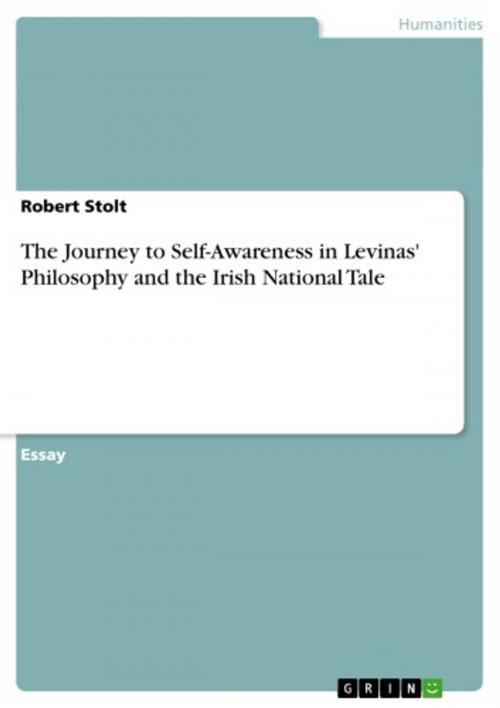The Journey to Self-Awareness in Levinas' Philosophy and the Irish National Tale
Nonfiction, Religion & Spirituality, Philosophy| Author: | Robert Stolt | ISBN: | 9783640631988 |
| Publisher: | GRIN Publishing | Publication: | May 27, 2010 |
| Imprint: | GRIN Publishing | Language: | English |
| Author: | Robert Stolt |
| ISBN: | 9783640631988 |
| Publisher: | GRIN Publishing |
| Publication: | May 27, 2010 |
| Imprint: | GRIN Publishing |
| Language: | English |
Essay from the year 2010 in the subject Philosophy - Practical (Ethics, Aesthetics, Culture, Nature, Right, ...), grade: 1,0, University of St Andrews, language: English, abstract: Already in ancient times the image of the Other was negatively connoted with the Foreign imagined as a monster creature, dog-headed or monocular, which has manifested itself in the opposition of the 'civilised' and the 'primitive world'. This construct helps integrate the foreign reality into the own cultural horizon of knowledge. This builds the starting point for the thesis of this essay that suggests that only through the unprejudiced encounter with the Other can the Self truly be. The idea derives from Kant's theory that claims that in order to be ourselves we need to combine with other people (Wohlgemut 2009). Therefore, what is attempted in this essay is to analyse the process of self-awareness in Maria Edgeworth's Ennui (1809), Lady Morgan's The Wild Irish Girl (1806) and in Levinas's The Trace of the Other (1986). In his philosophy of encounter, Levinas promotes the devotion to the Other. For him, the key to ethical commitment lies in the encounter with the Other. As will be shown in the course of this essay, the two discussed Irish national tales develop their narrative around this philosophy of encountering the Other that brings about self-awareness. To set a ground for the analysis, chapter two is dedicated to explore the phenomenon of mythisising the Other. Subsequently, chapter three shall analyse in what way Edgeworth, Lady Morgan and Levinas promote the shedding of the myths that develop around representing the Foreign. The process of overcoming cultural borders shall be looked at in more detail in chapter four. Furthermore, chapter five shall elucidate the national characters displayed in the Irish tales and contrast them to Levinas philosophy. Lastly, chapter six will conclude the essay in a retrospective analysis.
Essay from the year 2010 in the subject Philosophy - Practical (Ethics, Aesthetics, Culture, Nature, Right, ...), grade: 1,0, University of St Andrews, language: English, abstract: Already in ancient times the image of the Other was negatively connoted with the Foreign imagined as a monster creature, dog-headed or monocular, which has manifested itself in the opposition of the 'civilised' and the 'primitive world'. This construct helps integrate the foreign reality into the own cultural horizon of knowledge. This builds the starting point for the thesis of this essay that suggests that only through the unprejudiced encounter with the Other can the Self truly be. The idea derives from Kant's theory that claims that in order to be ourselves we need to combine with other people (Wohlgemut 2009). Therefore, what is attempted in this essay is to analyse the process of self-awareness in Maria Edgeworth's Ennui (1809), Lady Morgan's The Wild Irish Girl (1806) and in Levinas's The Trace of the Other (1986). In his philosophy of encounter, Levinas promotes the devotion to the Other. For him, the key to ethical commitment lies in the encounter with the Other. As will be shown in the course of this essay, the two discussed Irish national tales develop their narrative around this philosophy of encountering the Other that brings about self-awareness. To set a ground for the analysis, chapter two is dedicated to explore the phenomenon of mythisising the Other. Subsequently, chapter three shall analyse in what way Edgeworth, Lady Morgan and Levinas promote the shedding of the myths that develop around representing the Foreign. The process of overcoming cultural borders shall be looked at in more detail in chapter four. Furthermore, chapter five shall elucidate the national characters displayed in the Irish tales and contrast them to Levinas philosophy. Lastly, chapter six will conclude the essay in a retrospective analysis.















